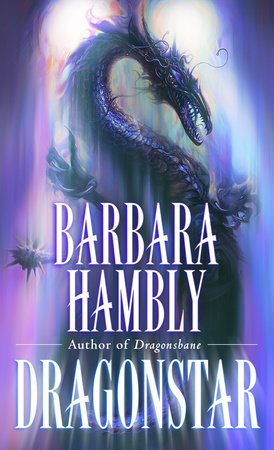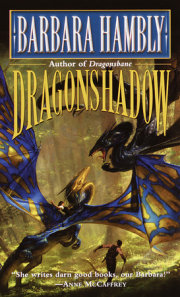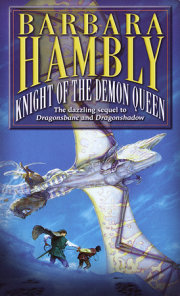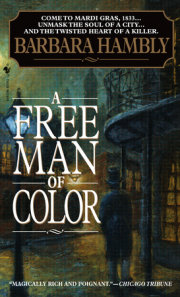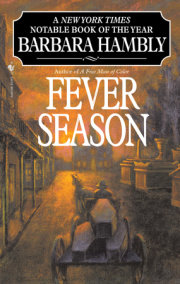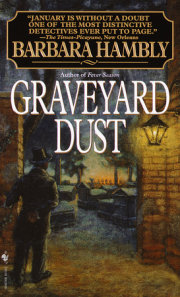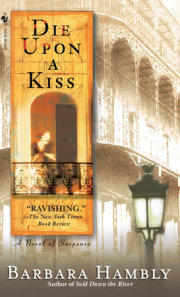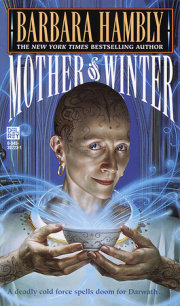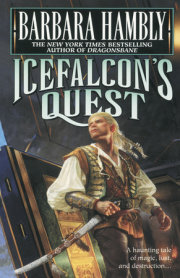The Demon Queen came in the dark hours before dawn; she shined in the blackness with the moony radience of rotting wood. Chained, John Aversin raised his head and squinted at her; his breath came fast. The King’s guards had taken his spectacles from him when he’d been brought to the cell beneath the prison tower, and even at three feet—the cell measured barely six—she was blurred to him, which made him sure that this was no dream. That fact was perhaps the most frightening of all the things that frightened him that night.
Prince Gareth, Regent for the mindbroken King of Bel, had promised he’d return Aversin’s spectacles to him with the guardsman he’d send to smuggle him out. That had been that afternoon, while the King’s men and those of the King’s councilor, Ector of Sindestray, were building a pyre in the square before the city’s market hall to burn him alive for trafficking with demons. “He’ll come with the midnight watch, when the courtyard is quiet,” the young man had promised, pushing his own thick-lensed spectacles up onto the bridge of his nose. “He’ll bring you a horse and food,” for it was customary to starve prisoners condemned to the stake. After three days in the dungeon, John was too light-headed and short of breath to put up much of a fight or run very far even if he could escape from his chains. “The man I’ll send—Captain Tourneval—is loyal to me, and will ask no questions.”
By the dirty yellow torchlight that fell through the grilled trapdoor overhead—the cell’s only entrance, nearly twelve feet from the clayey rock of the floor—Gareth’s face, even to John’s myopic perception, had appeared haggard. Days without sleep deepened the lines that rulership and responsibility had put in the features of a boy who’d once ridden to the Winterlands to fetch John to the aid of the Realm, a boy who’d gone looking for the Dragonsbane of his precious ballads. That boy was twenty-four now, and carrying the burdens of a man.
A man’s grief had turned those facial lines to gouges, showing what Gareth’s face would look like in old age. Plague had swept the Realm and especially the capital of Bel. The fever seemed to come from no source, and it killed rich and poor alike. The Lady Trey, barely twenty-one years old and the mother of Gareth’s daughter, had died the day before.
Had died—and had returned.
“It’s all right,” Gareth had said, his light voice shaky with relief and exhaustion. He’d passed a nervous hand over his face. He was built like a fence-rail, and up until the start of his Regency five years ago had done little but study ancient ballads and modern fashions, a gawky and well-meaning dandy whose elder cousin, only the previous summer, had nearly taken the Regency from him by force. “There’s a healer, a very great doctor, in the town. He—he brought her back. She’s all right. . . .”
And at the words, John’s heart sank, and the memory of them made him shudder now. In other worlds, in the alien Hells and alien realities to which the Demon Queen had sent him on errantry, he had seen how demons entered the bodies of the dead. He had seen what those people became, and what they did.
Gar, no. No . . .
And in the young man’s eyes, sick with relief that the woman he so adored had not after all gone out of his life, John saw that he could not speak. For if he said, She’s a demon, Gar, and you must burn her alive as Ector seeks to burn me, the young Regent would have turned away. Would have made his choice of what to believe, and left John to face the fire.
But as John heard the midnight shift arrive and begin their rounds, and later start up games of dominoes and dice to pass the time, he thought, I might just as well have had me say.
Laughter overhead, and patrolling footfalls that didn’t pause. Anxiety turned to suspicion, then to despair.
Had the demon who now dwelled in Trey’s body dosed Gareth’s wine? Drugged him before he’d met with this Captain Tourneval? Or had it only been sufficient to whisper love-words to him, draw him to her bed? Exhausted, the young Regent would sleep like a dead man afterward. His dreams would be sweet with relief and satiation, with demon-painted visions that now everything would be well forever.
Demons were good at that.
Small odds, anyway, John thought as the night dragged into its final hours. The muttering of the other prisoners along the corridor faded, the sounds he’d heard for three nights now. Curses or weeping, or the gluey persistent coughs of pneumonia. A few yards away from the grilled trapdoor a single torch leaked little of its light down into the cell, four elongated brazen trapezoids on the stones some two yards above John’s head. Here, under the central tower of the old section of the palace, the damp cold seeped to the marrow. The river wasn’t far away. Though it was impossible for Aversin to hear anything but the murmur of the guards, the occasional cries of the other prisoners, his too-vivid imagination—the bane of his thirty-nine years—manufactured for him the footsteps of the men who dragged wood to the pyre in the market square, the harsh rattle of tinder being stacked, and the clack of the ladders raised against the stake.
Trafficked with demons, he did, he could hear them saying, like voices in a nightmare. Got to watch them. Demons started this plague, the way demons possessed them wizards, that evil Caradoc, that tried to raise a rebellion in summer and slay the old King. Never trust those that have words with demons. . . .
And they were right, of course. That was the worst of it, that John agreed with everything that was being done. As a ruler himself it was what he’d have done.
He gazed in the darkness at the sickly phosphorescent specter that stood before him, smiling—even without his spectacles, he knew she smiled.
Her hair clothed her, wreaths and coils like sable sea wrack and like sea wrack gemmed with pearls and creeping with nacreous life. Thighs, shoulders, coral-tipped breasts lifted through it like alabaster, and the spells of lust and yearning ran off him like rain. She said nothing, only looked at him with those golden goat-like eyes. He knew she was waiting for him to speak.
Get me out of this!
Since the age of ten he’d read every book and fragment he could get his hands on of law and judicial proceedings. As Thane of the Winterlands it was part of his duties to bring as much justice as he could manage to those in his care. He knew exactly what would be done to a man who trafficked with demons, and why it had to be that way.
Don’t let them burn me!
He’d been Thane of the Winterlands for twenty-three years. He’d seen men die by fire.
It is the whole aim and purpose of the Hellspawn to find in the world of the living a servant who will be theirs, the encyclopedist Gantering Pellus had said centuries ago. Who will open for them a gateway through which they can pass out of Hell. They amuse themselves with human terror and human pain, drinking them as beasts and men drink water. They seek power and destruction to protect themselves and to wage war against others of their kind, but this is always true: that they will do anything they can to enslave human souls to their will. Never forget this. Gar, come and get me out of this!
John knew by then that he would not.
Jenny . . . !
But Jenny Waynest, even had she known he was imprisoned, had lost her power in the summer. Her magic had been stripped away in the battle with the demon Folcalor, who had possessed Caradoc the mage. Wise and clever, Jenny had been in Bel only days ago. Gareth had said as much, but none knew where she was now.
This slim, tall semblance of a woman, beautiful as moonfire and corpselight, was his only hope. As he, John Aversin, was Gareth’s only hope. I’m the only one who truly knows, who has seen demons take the bodies of the newly dead. The only one that can warn him.
This thing that looked like a woman . . . And he had only to speak.
Don’t let me die. Don’t let me burn.
He had tricked her once, putting his soul in pawn to her in order to defeat the demon Folcalor and then redeeming it with Jenny’s help and that of the dragon Morkeleb.
He had served the Demon Queen once, fetching for her from the Hell of the Shining Things the water that would show her where the Otherworld scientist Corvin NinetyfiveFifty was hiding. He had gone to fetch this Corvin—who had once betrayed her, she said—in an enchanted box of silver and dragonbone. Maybe this would have been enough to bargain with her for his freedom, but the box had been stolen from him by Amayon, his demon guide.
So he had nothing to bargain with now, nothing to trade. Except himself.
She stayed in the corner of the cell, like the reflection of light on the stones, until the stamp and scuffle of guards’ boots in the corridor above marked the end of the midnight watch, the coming of dawn. Then, still smiling, slowly, like a dream, she faded away.
A guard lowered water to him, down through the grille on the end of a rope. It was the first water John had had in three days, but he poured it onto the floor, guessing it would be drugged. He was the slayer of at least one dragon, trained all his life as a warrior, however unwillingly. Even at the end of three days’ starvation and thirst, the guards were ready for trouble. Because demons could sometimes enter into the bodies of those who were drunken or drugged, he guessed that whatever was in the water wouldn’t cloud his mind, but there were herbs aplenty that could be counted on to double a man up with cramp or wring him out with purging or dry heaves so that he’d offer no resistance as he was stripped and shaved and dragged to the stake.
He was aware of the man watching him down through the grille, and knew he’d carry word of it back to the guards.
Bugger, thought John, lying back on the verminous straw tick and closing his eyes. If they want to do this the hard way, let’s do this the hard way. Under other circumstances Ector of Sindestray, Councilor and Treasurer of Prince Gareth’s Council, might simply have bricked over the grille and let it go at that. But so long as Gareth was alive, this wasn’t possible. And the command to burn those who trafficked with demons had been instituted precisely to be sure that the physical body was destroyed beyond the demons’ use just as—and no later than—the departure of life and consciousness.
Would the Demon Queen still come, he wondered, if he now called on her name?
He was afraid she would.
That was the problem with demons. The wizard Caradoc had fallen into the trap of it, and started this whole deadly game. Once you called on them, you never knew what they would demand. Caradoc had probably only wanted a little more power. There were any number of ward-spells to hold demons at bay. True, all the grimoires ever written warned against calling on demons, ward-spells or no ward-spells, but Caradoc was vain of his abilities.
Caradoc’s ward-spells hadn’t worked. John still didn’t know why—at a guess, Caradoc didn’t, either. The demons had somehow reacquired power they hadn’t had for a thousand years, and nothing had stopped them so far, except the spells John had bought from other demons. . . .
Always a bad idea.
John didn’t put up a fight when the Councilor’s guards came for him. From his days of friendship with Gareth he knew the layout of the prison tower: It was the ancient core of Bel’s original palace. He knew there was no way to flee. He would only be hurt, probably badly enough to prevent a break later, between the old gate on the Queen’s Lane and the square before the city’s market hall where public burnings were customarily conducted. It wasn’t hard to act as if he were too exhausted and debilitated to be any threat when the guards cut off his hair and dressed him in the thin white shift of the condemned. A squad of six soldiers in the red cloaks and trousers of the House Uwanë came to do this: “You’re joking,” said John as they all came down the ladder into the cramped cell. “Somebody thinks I could take on five?”
His hands were manacled behind him. Just as well he hadn’t put up a fight in the cell, he thought—always supposing there was room for one—as he was manhandled up to the corridor above, and led along to the watchroom. Whoever built the place probably had him in mind. There wasn’t an inch of cover. The walk, over flag- stones worn uneven by two centuries of military boots, seemed two or three times longer than it had when they’d brought him in; he was dizzy when they reached the round stone room at its end. Hunger and dehydration made all things unreal, and he felt unable to picture anything clearly beyond each separate moment. The de- tails of his capture and imprisonment blurred and segued into the battle that had preceded it: a battle against garishly painted men possessed by demons and wielding the horrible weapons of the bizarre, waterlogged city in another world where he’d gone to find Corvin NinetyfiveFifty.
Copyright © 2002 by Barbara Hambly. All rights reserved. No part of this excerpt may be reproduced or reprinted without permission in writing from the publisher.

